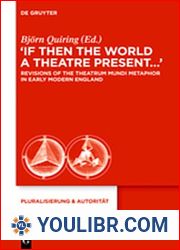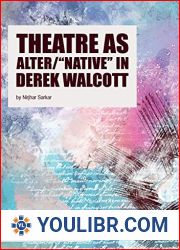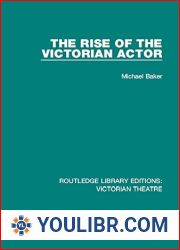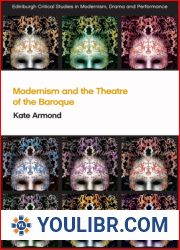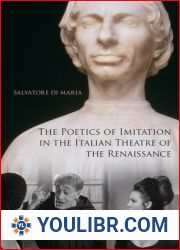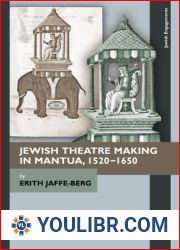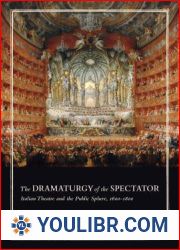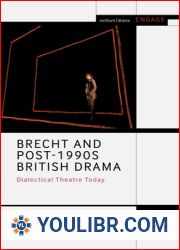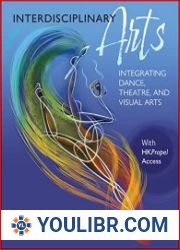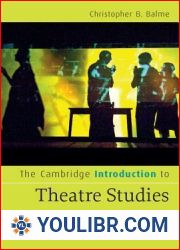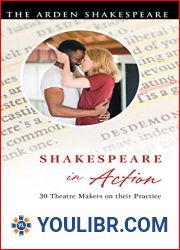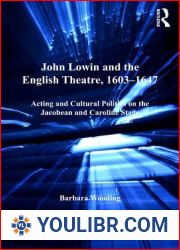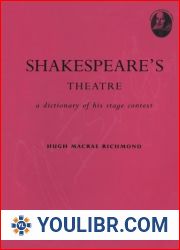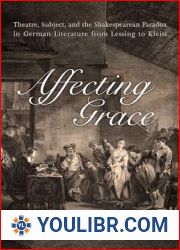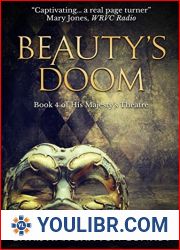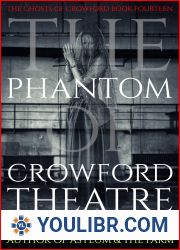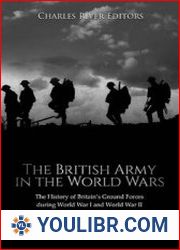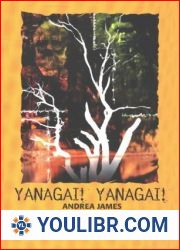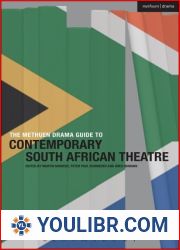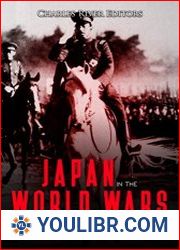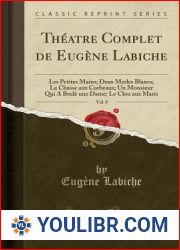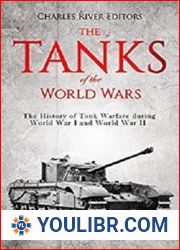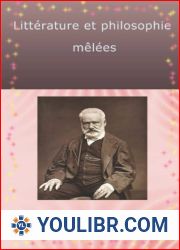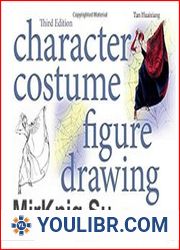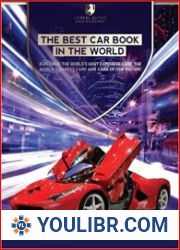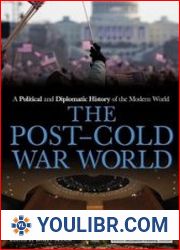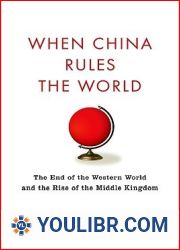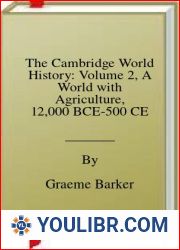
BOOKS - If Then the World a Theatre Present: Revisions of the Theatrum Mundi Metaphor...

If Then the World a Theatre Present: Revisions of the Theatrum Mundi Metaphor in Early Modern England (Pluralisierung and Autoritat)
Author: Bjorn Quiring
Year: April 15, 2014
Format: PDF
File size: PDF 4.8 MB
Language: English
Year: April 15, 2014
Format: PDF
File size: PDF 4.8 MB
Language: English
To picture the world as a theatre has been a common procedure since antiquity. In early modernity, however, the theatrum mundi became a particularly prominent metaphor, especially in England where it was used by playwrights as well as by theologians opposed to the professional theatre. This volume examines how and why the uses of the metaphor changed at that time, drawing on plays, pamphlets, other textual sources as well as on images.
A história do livro «If Then the World a Theater» gira em torno do conceito theatrum mundi, uma metáfora usada ao longo da história para descrever o mundo como palco, mas que ganhou destaque na Inglaterra moderna. O autor afirma que esta metáfora não foi usada apenas por dramaturgos, mas também por teólogos e outros para descrever o mundo como um lugar de representação e espetáculo. No entanto, com o passar do tempo, o uso dessa metáfora evoluiu e mudou, refletindo os valores culturais e sociais do período. O livro começa por estudar a origem da metáfora theatrum mundi na Grécia Antiga e seu desenvolvimento na Idade Média antes de se concentrar em seu uso na Inglaterra moderna inicial. Aqui o autor mostra como a metáfora foi adaptada e reinterpretada por diferentes grupos, de dramaturgos como Shakespeare a teólogos como John Donna. O autor também se aprofundou no papel da tecnologia na formação da nossa compreensão do mundo, afirmando que o desenvolvimento de novas tecnologias e descobertas científicas desafiou a visão tradicional do mundo como uma etapa e levou à pluralização das perspectivas. À medida que o livro evolui, o autor explora como a metáfora do theatrum mundi foi usada para justificar as estruturas de poder políticas e religiosas, e alguns grupos a usaram para promover sua própria autoridade, enquanto outros procuraram miná-la. Fabuła „If then the World a Theatre” obraca się wokół koncepcji theatrum mundi, metafory, która została wykorzystana w całej historii do opisania świata jako sceny, ale która nabrała szczególnego znaczenia we wczesnej współczesnej Anglii. Autor twierdzi, że metafora ta była używana nie tylko przez dramaturgów, ale także przez teologów i innych do opisywania świata jako miejsca występów i widowisk. Z czasem jednak stosowanie tej metafory ewoluowało i zmieniało się, odzwierciedlając zmieniające się wartości kulturowe i społeczne tego okresu. Książka rozpoczyna się od badań nad pochodzeniem metafory teatrum mundi w starożytnej Grecji i jej rozwojem w średniowieczu, zanim skupi się na jej zastosowaniu we wczesnej współczesnej Anglii. Tutaj autor pokazuje, jak metafora została zaadaptowana i odtworzona przez różne grupy, od dramatopisarzy, takich jak Szekspir, po takich teologów jak John Donne. Autor zagłębia się również w rolę technologii w kształtowaniu naszego zrozumienia świata, argumentując, że rozwój nowych technologii i odkryć naukowych podważył tradycyjne postrzeganie świata jako etapu i doprowadził do pluralizacji perspektyw. W miarę rozwoju książki autor bada, jak metafora teatrum mundi została wykorzystana do usprawiedliwienia struktur władzy politycznej i religijnej, przy czym niektóre grupy wykorzystują ją do promowania własnej władzy, podczas gdy inne starały się ją podważyć. 「もしも世界が劇場なら」という構図は、歴史を通じて世界をシーンとして表現するために使われてきたが、近世イギリスでは特別な意味を持っていた「劇場ムンディ」という概念を中心に展開している。このメタファーは劇作家だけでなく、神学者などによって世界をパフォーマンスと光景の場所として表現するために使われたと著者は論じている。しかし、時代の変化する文化的、社会的価値観を反映して、この比喩の使用は時間の経過とともに進化し、変化しました。この本は、古代ギリシアにおける比喩劇場ムンディの起源と中世におけるその発展の研究から始まり、近世イギリスでの使用に焦点を当てています。ここでは、シェイクスピアのような劇作家からジョン・ドンのような神学者まで、比喩がさまざまなグループによってどのように適応され、再考されたかを示しています。また、新技術の開発や科学的発見は、従来の世界観を舞台として挑戦し、視点の多元化につながったと主張し、世界の理解を形作るための技術の役割についても考察している。本が進行するにつれて、著者は、政治的、宗教的権力構造を正当化するために劇場ムンディの比喩がどのように使用されたかを探求し、いくつかのグループはそれを自らの権威を促進するために使用し、他のグループはそれを弱体化させようとした。 Die Handlung des Buches „If Then the World a Theatre“ dreht sich um das Konzept des Theatrum mundi, eine Metapher, die im Laufe der Geschichte verwendet wurde, um die Welt als Bühne zu beschreiben, die aber im frühen modernen England eine besondere Bedeutung erlangte. Der Autor argumentiert, dass diese Metapher nicht nur von Dramatikern, sondern auch von Theologen und anderen verwendet wurde, um die Welt als Ort der Repräsentation und des Spektakels zu beschreiben. Im Laufe der Zeit hat sich die Verwendung dieser Metapher jedoch weiterentwickelt und verändert, was die sich verändernden kulturellen und sozialen Werte der Zeit widerspiegelt. Das Buch beginnt mit einer Untersuchung der Ursprünge der Metapher theatrum mundi im antiken Griechenland und ihrer Entwicklung im Mittelalter, bevor es sich auf ihre Verwendung im frühen modernen England konzentriert. Hier zeigt der Autor, wie die Metapher von verschiedenen Gruppen angepasst und neu interpretiert wurde, von Dramatikern wie Shakespeare bis hin zu Theologen wie John Donn. Der Autor geht auch auf die Rolle der Technologie bei der Gestaltung unseres Verständnisses der Welt ein und argumentiert, dass die Entwicklung neuer Technologien und wissenschaftlicher Entdeckungen traditionelle Weltanschauungen als Bühne herausgefordert und zu einer Pluralisierung der Perspektiven geführt hat. Während sich das Buch entwickelt, untersucht der Autor, wie die Metapher theatrum mundi verwendet wurde, um politische und religiöse Machtstrukturen zu rechtfertigen, wobei einige Gruppen sie nutzten, um ihre eigene Autorität zu fördern, während andere versuchten, sie zu untergraben. העלילה של ”If Then the World a Theatre” סובבת סביב המושג תיאטרם מונדי, מטאפורה ששימשה לאורך ההיסטוריה לתאר את העולם כסצנה, אך קיבלה משמעות מיוחדת באנגליה המודרנית המוקדמת. המחבר טוען כי מטאפורה זו שימשה לא רק על ידי מחזאים אלא גם על ידי תיאולוגים ואחרים כדי לתאר את העולם כמקום של הופעה ומחזה. עם הזמן, השימוש במטפורה זו התפתח והשתנה, תוך השתקפות הערכים התרבותיים והחברתיים המשתנים של התקופה. הספר מתחיל במחקר על מקור המטאפורה תיאטרם מונדי ביוון העתיקה והתפתחותה בימי הביניים, לפני שהתמקד בשימוש בו באנגליה המודרנית המוקדמת. כאן, המחבר מראה כיצד המטאפורה הותאמה והותאמה מחדש על ידי קבוצות שונות, ממחזאים כמו שייקספיר ועד תיאולוגים כמו ג 'ון דון. המחבר גם מתעמק בתפקידה של הטכנולוגיה בעיצוב הבנתנו את העולם, וטוען כי פיתוח טכנולוגיות חדשות ותגליות מדעיות קראו תיגר על השקפת העולם המסורתית כבמה והובילו לפלורליזציה של נקודות מבט. ככל שהספר מתקדם, המחבר בוחן כיצד נעשה שימוש במטאפורה של תיאטרם מונדי כדי להצדיק מבני כוח פוליטיים ודתיים, כאשר קבוצות מסוימות משתמשות בו כדי לקדם את סמכותן, בעוד שאחרים ביקשו לחתור תחתיו. 「如果世界是劇院」一書的情節圍繞著劇院蒙迪的概念,這種隱喻在整個歷史上一直被用來形容世界是一個場景,但在現代早期英格蘭尤為重要。作者認為,這種隱喻不僅被劇作家,而且被神學家和其他人用來形容世界是表現和奇觀的地方。但是,隨著時間的流逝,這種隱喻的使用不斷發展和變化,反映了該時期不斷變化的文化和社會價值觀。該書首先研究了古希臘隱喻的起源及其在中世紀的發展,然後專註於其在現代早期英格蘭的使用。在這裏,作者展示了隱喻是如何被不同群體改編和重新想象的,從莎士比亞這樣的劇作家到約翰·唐恩這樣的神學家。作者還深入探討了技術在塑造我們對世界的理解方面的作用,認為新技術和科學發現的發展挑戰了傳統的世界觀作為一個階段,並導致了觀點的多元化。隨著這本書的發展,作者探討了劇院蒙迪的隱喻如何被用來證明政治和宗教權力結構的合理性,一些團體利用它來提升自己的權威,而另一些團體則試圖破壞它。
"If Then the World a Theatre'ın konusu, tarih boyunca dünyayı bir sahne olarak tanımlamak için kullanılan, ancak erken modern İngiltere'de özel bir önem kazanan bir metafor olan theatrum mundi kavramı etrafında dönüyor. Yazar, bu metaforun sadece oyun yazarları tarafından değil, aynı zamanda teologlar ve diğerleri tarafından dünyayı bir performans ve gösteri yeri olarak tanımlamak için kullanıldığını savunuyor. Bununla birlikte, zamanla, bu metaforun kullanımı, dönemin değişen kültürel ve sosyal değerlerini yansıtacak şekilde gelişti ve değişti. Kitap, erken modern İngiltere'de kullanımına odaklanmadan önce, eski Yunanistan'daki metafor theatrum mundi'nin kökeninin ve Orta Çağ'daki gelişiminin incelenmesiyle başlar. Burada yazar, metaforun Shakespeare gibi oyun yazarlarından John Donne gibi teologlara kadar farklı gruplar tarafından nasıl uyarlandığını ve yeniden tasarlandığını gösteriyor. Yazar ayrıca, yeni teknolojilerin ve bilimsel keşiflerin gelişiminin, dünyanın bir sahne olarak geleneksel görüşlerine meydan okuduğunu ve perspektiflerin çoğullaşmasına yol açtığını savunarak, dünya anlayışımızı şekillendirmede teknolojinin rolüne de değinmektedir. Kitap ilerledikçe, yazar theatrum mundi metaforunun siyasi ve dini iktidar yapılarını haklı çıkarmak için nasıl kullanıldığını araştırıyor, bazı gruplar kendi otoritelerini teşvik etmek için kullanırken, diğerleri onu baltalamak istedi. تدور حبكة «إذا كان العالم مسرحًا» حول مفهوم المسرح موندي، وهو استعارة تم استخدامها عبر التاريخ لوصف العالم كمشهد، ولكنها اكتسبت أهمية خاصة في أوائل إنجلترا الحديثة. يجادل المؤلف بأن هذه الاستعارة لم تستخدم فقط من قبل الكتاب المسرحيين ولكن أيضًا من قبل اللاهوتيين وغيرهم لوصف العالم بأنه مكان للأداء والمشهد. ومع ذلك، مع مرور الوقت، تطور وتغير استخدام هذه الاستعارة، مما يعكس القيم الثقافية والاجتماعية المتغيرة في تلك الفترة. يبدأ الكتاب بدراسة أصل المجاز المسرحي موندي في اليونان القديمة وتطوره في العصور الوسطى، قبل التركيز على استخدامه في أوائل إنجلترا الحديثة. هنا، يوضح المؤلف كيف تم تكييف الاستعارة وإعادة تخيلها من قبل مجموعات مختلفة، من الكتاب المسرحيين مثل شكسبير إلى اللاهوتيين مثل جون دون. يتعمق المؤلف أيضًا في دور التكنولوجيا في تشكيل فهمنا للعالم، بحجة أن تطوير التقنيات الجديدة والاكتشافات العلمية تحدى الآراء التقليدية للعالم كمرحلة وأدى إلى تعدد وجهات النظر. مع تقدم الكتاب، يستكشف المؤلف كيف تم استخدام استعارة المسرح موندي لتبرير هياكل السلطة السياسية والدينية، حيث تستخدمها بعض المجموعات للترويج لسلطتها بينما سعى البعض الآخر إلى تقويضها. The plot of the book "If Then the World a Theatre" revolves around the concept of the theatrum mundi, a metaphor that has been used throughout history to describe the world as a stage, but which took on particular significance in early modern England. The author argues that this metaphor was used not only by playwrights but also by theologians and others to describe the world as a place of performance and spectacle. However, over time, the use of this metaphor evolved and changed, reflecting the shifting cultural and social values of the period. The book begins by exploring the origins of the theatrum mundi metaphor in ancient Greece and its development through the Middle Ages, before focusing on its use in early modern England. Here, the author shows how the metaphor was adapted and reinterpreted by different groups, from playwrights like Shakespeare to theologians like John Donne. The author also delves into the role of technology in shaping our understanding of the world, arguing that the development of new technologies and scientific discoveries challenged traditional views of the world as a stage and led to a pluralization of perspectives. As the book progresses, the author examines how the theatrum mundi metaphor was used to justify political and religious power structures, with some groups using it to promote their own authority while others sought to subvert it. Сюжет книги «If Then the World a Theatre» вращается вокруг концепции theatrum mundi, метафоры, которая использовалась на протяжении всей истории для описания мира как сцены, но которая приобрела особое значение в ранней современной Англии. Автор утверждает, что эта метафора использовалась не только драматургами, но и богословами и другими, чтобы описать мир как место представления и зрелища. Однако со временем использование этой метафоры развивалось и менялось, отражая меняющиеся культурные и социальные ценности периода. Книга начинается с изучения происхождения метафоры theatrum mundi в Древней Греции и её развития в Средние века, прежде чем сосредоточиться на её использовании в ранней современной Англии. Здесь автор показывает, как метафора была адаптирована и переосмыслена разными группами, от драматургов вроде Шекспира до богословов вроде Джона Донна. Автор также углубляется в роль технологий в формировании нашего понимания мира, утверждая, что развитие новых технологий и научных открытий бросило вызов традиционным взглядам на мир как на этап и привело к плюрализации перспектив. По мере развития книги автор исследует, как метафора theatrum mundi использовалась для оправдания политических и религиозных властных структур, причем некоторые группы использовали ее для продвижения своего собственного авторитета, в то время как другие стремились подорвать его. скачать файл PDF If Then the World a Theatre Present Revisions of the Theatrum Mundi Metaphor in Early Modern England (Pluralisierung and Autoritat) descargar archivo pdf If Then the World a Theatre Present Revisions of the Theatrum Mundi Metaphor in Early Modern England (Pluralisierung and Autoritat) تنزيل ملف pdf إذا كان العالم مسرحًا يقدم تنقيحات لمسرح موندي المجازي في أوائل إنجلترا الحديثة (Pluralisierung and Autoritat) pdf 파일 다운로드 Scarica il file pdf If Then the World a Theatre Present Revisions of the Theatrum Mundi Metaphor in Early Modern England (Pluralisierung and Autoritat) télécharger le fichier pdf If Then the World a Theatre Present Revisions of the Theatrum Mundi Metaphor in Early Modern England (Pluralisierung and Autoritat) להוריד קובץ PDF If Then the World a Theatre Present Revisions of the Theatrum Mundi Metaphor in Early Modern England (Pluralisierung and Autoritat) PDF-Datei herunterladen If Then the World a Theatre Present Revisions of the Theatrum Mundi Metaphor in Early Modern England (Pluralisierung and Autoritat) PDFファイルをダウンロード それでは世界が現代イングランドの劇場ムンディ比喩の現在の改訂(PluralisierungとAutoritat) pobierz plik pdf Jeśli wtedy Świat Teatr Obecny Rewizje Teatrum Mundi Metafora we wczesnej Anglii Nowoczesnej (Pluralisierung i Autoritat) download pdf file If Then the World a Theatre Present: Revisions of the Theatrum Mundi Metaphor in Early Modern England (Pluralisierung and Autoritat) descarregar ficheiro pdf If Then the World a Theatre Present Revisions of the Theatrum Mundi Metaphor in Early Modern England (Pluralisierung and Autoritat) pdf dosyasını indir O Zaman Dünya Bir Tiyatro Erken Modern İngiltere'de Theatrum Mundi Metaforunun Revizyonlarını Sunuyorsa (Pluralisierung ve Autoritat) download pdf file 下载 pdf 文件 If Then the World a Theatre Present Revisions of the Theatrum Mundi Metaphor in Early Modern England (Pluralisierung and Autoritat)
A representação do mundo como teatro foi um procedimento comum desde a antiguidade. No início, porém, o teatro mundi tornou-se uma metáfora particularmente visível, especialmente na Inglaterra, onde foi usado por dramaturgos e teólogos contrários ao teatro profissional. Este volume aborda como e por que o uso da metáfora mudou na época, baseando-se em peças, panfletos, outras fontes textuais e imagens.
La representación del mundo como teatro ha sido un procedimiento habitual desde la antigüedad. En la modernidad temprana, sin embargo, el teatro mundi se convirtió en una metáfora especialmente notable, especialmente en Inglaterra, donde fue utilizado por dramaturgos así como teólogos opuestos al teatro profesional. Este volumen examina cómo y por qué el uso de la metáfora cambió en ese momento, apoyándose en obras de teatro, panfletos, otras fuentes textuales, así como en imágenes.
Die Darstellung der Welt als Theater ist seit der Antike ein übliches Verfahren. In der frühen Moderne wurde das Mundi-Theater jedoch besonders in England zu einer prominenten Metapher, wo es sowohl von Dramatikern als auch von Theologen verwendet wurde, die sich dem professionellen Theater widersetzten. Dieser Band untersucht, wie und warum sich der Gebrauch der Metapher in dieser Zeit verändert hat, indem er sich auf Theaterstücke, Pamphlete, andere Textquellen sowie Bilder stützt.
Представление мира как театра было обычной процедурой с древности. В ранней современности, однако, театр мунди стал особенно заметной метафорой, особенно в Англии, где он использовался драматургами, а также теологами, выступающими против профессионального театра. В этом томе рассматривается, как и почему использование метафоры изменилось в то время, опираясь на пьесы, памфлеты, другие текстовые источники, а также на изображения.
La représentation du monde en tant que théâtre est une procédure ordinaire depuis l'antiquité. Dans les premiers temps, cependant, le théâtre mundi est devenu une métaphore particulièrement visible, en particulier en Angleterre, où il a été utilisé par des dramaturges ainsi que des théologues opposés au théâtre professionnel. Ce volume examine comment et pourquoi l'utilisation de la métaphore a changé à l'époque, en s'appuyant sur des pièces, des brochures, d'autres sources de texte et des images.
To picture the world as a theatre has been a common procedure since antiquity. In early modernity, however, the theatrum mundi became a particularly prominent metaphor, especially in England where it was used by playwrights as well as by theologians opposed to the professional theatre. This volume examines how and why the uses of the metaphor changed at that time, drawing on plays, pamphlets, other textual sources as well as on images.
La rappresentazione del mondo come teatro era una procedura normale dall'antichità. Nella prima modernità, tuttavia, il teatro mundi è diventato una metafora particolarmente visibile, soprattutto in Inghilterra, dove è stato utilizzato da drammaturghi e teologi che si oppongono al teatro professionale. Questo volume spiega come e perché l'uso della metafora è cambiato in quel momento, basandosi su opere, pamphlet, altre fonti testuali e immagini.
A representação do mundo como teatro foi um procedimento comum desde a antiguidade. No início, porém, o teatro mundi tornou-se uma metáfora particularmente visível, especialmente na Inglaterra, onde foi usado por dramaturgos e teólogos contrários ao teatro profissional. Este volume aborda como e por que o uso da metáfora mudou na época, baseando-se em peças, panfletos, outras fontes textuais e imagens.
La representación del mundo como teatro ha sido un procedimiento habitual desde la antigüedad. En la modernidad temprana, sin embargo, el teatro mundi se convirtió en una metáfora especialmente notable, especialmente en Inglaterra, donde fue utilizado por dramaturgos así como teólogos opuestos al teatro profesional. Este volumen examina cómo y por qué el uso de la metáfora cambió en ese momento, apoyándose en obras de teatro, panfletos, otras fuentes textuales, así como en imágenes.
Die Darstellung der Welt als Theater ist seit der Antike ein übliches Verfahren. In der frühen Moderne wurde das Mundi-Theater jedoch besonders in England zu einer prominenten Metapher, wo es sowohl von Dramatikern als auch von Theologen verwendet wurde, die sich dem professionellen Theater widersetzten. Dieser Band untersucht, wie und warum sich der Gebrauch der Metapher in dieser Zeit verändert hat, indem er sich auf Theaterstücke, Pamphlete, andere Textquellen sowie Bilder stützt.
Представление мира как театра было обычной процедурой с древности. В ранней современности, однако, театр мунди стал особенно заметной метафорой, особенно в Англии, где он использовался драматургами, а также теологами, выступающими против профессионального театра. В этом томе рассматривается, как и почему использование метафоры изменилось в то время, опираясь на пьесы, памфлеты, другие текстовые источники, а также на изображения.
La représentation du monde en tant que théâtre est une procédure ordinaire depuis l'antiquité. Dans les premiers temps, cependant, le théâtre mundi est devenu une métaphore particulièrement visible, en particulier en Angleterre, où il a été utilisé par des dramaturges ainsi que des théologues opposés au théâtre professionnel. Ce volume examine comment et pourquoi l'utilisation de la métaphore a changé à l'époque, en s'appuyant sur des pièces, des brochures, d'autres sources de texte et des images.
To picture the world as a theatre has been a common procedure since antiquity. In early modernity, however, the theatrum mundi became a particularly prominent metaphor, especially in England where it was used by playwrights as well as by theologians opposed to the professional theatre. This volume examines how and why the uses of the metaphor changed at that time, drawing on plays, pamphlets, other textual sources as well as on images.
La rappresentazione del mondo come teatro era una procedura normale dall'antichità. Nella prima modernità, tuttavia, il teatro mundi è diventato una metafora particolarmente visibile, soprattutto in Inghilterra, dove è stato utilizzato da drammaturghi e teologi che si oppongono al teatro professionale. Questo volume spiega come e perché l'uso della metafora è cambiato in quel momento, basandosi su opere, pamphlet, altre fonti testuali e immagini.







